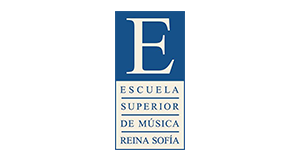SCHUMANN, R.: String Quartet No. 2: III. Scherzo: Presto (Part 1) (Masterclass with Gunter Pichler) (Cuarteto Brahms de El Mundo)

String Quartet No. 2 in F Major, Op. 41, No. 2
Composer: Schumann, Robert
Pichler, Gunter
Pelaez, Pedro
Pelaez, Marina
Munoz, Pablo
Picado, Ines
Cuarteto Brahms de El Mundo
Catalogue Number: RSS5410_1
In general terms, this masterclass combines the specific study of the piece with pieces of advice for an artistic career. During the class, they work on fingerings, accents, the ability to listen to oneself, methods of study, rhythmical accuracy, tempo, bow, body language, coming up with a proper system to study and the solutions to different problems. He also gives pieces of advice related to how to study, automatization of the movements while playing, mental and body control, selection of the repertoire for an audition or concert, etc.
Professor Pichler comments at the beginning of the class that a good fingering helps in a difficult passage although it is not very well worked. But it helps to improve quickly. The student should pay attention to the crescendos because they do not mean to play louder.
Musicians study many hours so it is necessary to think before playing in order to avoid wasting time. This is a problem of focussing.
Later during the class, Professor Pichler and the students use the metronome to find the correct tempo in this movement.
Pichler explains that there are three possibilities to play a note: with no vibrato, with vibrato and an intermediate stage in which the vibrato is very soft and supports the quality of sound.
The Professor insists on the idea that the body language is very important in our lives but also for the proper functioning of the string quartet.
